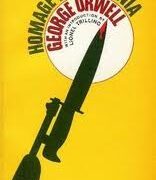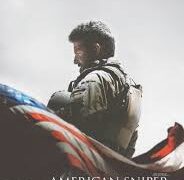The late Christopher Hitchens’ memoirs “Hitch 22” is a beast of a read. It’s possibly the densest forest of references and allusions I’ve ever encountered. Keeping even a modicum of composure while sliding down that jungle mud path, hacking not infrequently at vegetation to facilitate one’s progress, is quite a challenge. Th vocabulary alone is voluminous. It’s best to read it on kindle since you will need the dictionary often, that is if you are interested to know quite what he’s saying. My vocabulary builder has almost 500 words now and I would confidently assert that a full half of the entries derive from Hitchens. Words like “boondocks,” “caudillo,” “rebarbative,” “regnant” and “dreck” all make an appearance. Many of them are from French and can no doubt be dropped into conversation to impress interlocutors: “soi-disant,” “demi-monde,” “aperçus,” “embarras de choix” could each one day be just the “mot juste” you were looking for. No doubt Hitchens is a challenge, a rewarding one. His life was hectic and his energy for ideas and debate was extraordinary. He went far and wide to explore the issues of his day and was as close to fearless as any writer can reasonably be expected to be. He seems to have had a deep suspicion of, if not outright dislike for, Nixon, Reagan and Clinton. And, now that I think of it, he suffered an early trauma like so many other authors: his mother left his father and ended up taking her own life. He drank a lot and smoked too. He was excessive in so much, his perceptiveness in particular. He remembers his father saving a little girl in a pool and her father’s “undisguised rage and hatred” at having had his neglect broadcast. His affection for other...
“Homage to Catalonia” by George Orwell #3...
posted by Cloud
Why was Orwell doing this when he didn’t have to? The reason can found in sentences such as this one: “It was an extraordinary life that we were living – an extraordinary way to be at war, if you could call it a war.” The first reason given is that it was extraordinary, and like any writer, he was drawn to that. He saw the extraordinary as a challenge to his intellect, his body and as a vocation. In his essay, Why I Write, Orwell’s searingly honest about what makes a writer: “[T]here is a minority of gifted, wilful people who are determined to live their own lives to the end, and writers belong in this class. Serious writers, I should say, are on the whole more vain and self-centred than journalists, though less interested in money.” This is as bad as it gets with Orwell; the other reasons are far more laudable and inspiring. He felt the urge to find truth wherever he went; he calls it an “historical impulse”; and there’s also the “political purpose”, very much evident in Homage. He wrote: “The Spanish war and other events in 1936-7 turned the scales and thereafter I knew where I stood. Every line of serious work that I have written since 1936 has been written, directly or indirectly, against [italics] totalitarianism and for [italics] Socialism.” Then he writes something truly beautiful, something which somehow captures the essence of what it is to be a writer but also to be fully human: “So long as I remain alive and well I shall continue to feel strongly about prose style, to love the surface of the earth, and to take pleasure in solid objects and scraps of useless information.” He explains his reason for writing...
“Homage to Catalonia” by George Orwell #2...
posted by Cloud
The experience of battle was frustrating. The enemy came last in a list of priorities which included firewood, food and tobacco; Orwell lived to smoke: in The Road to Wigan Pier he derides those who refuse to smoke in order to prolong their lives by a few years. And smoking is a good way to kill the boredom of trench warfare. In Sebastian Junger’s fabulous journalistic treatise on the war in Afghanistan – an heir to Homage in many ways- the physicians sometimes tell non-smoker grunts to start the habit to keep sane. And how boring it must have been when, for a start you rarely saw the enemy and when you did, they were too far away to kill with a gun. Orwell writes with compassion and wisdom. On the subject of maintaining discipline in the ranks he has this to say: “When a man refused to obey an order you did not immediately get him punished; you first appealed to him in the name of comradeship. Cynical people with no experience of handling men will say instantly that this will never ‘work’, but as a matter of fact it does ‘work’ in the long run.” Militia forces held the front line against the fascists while the Popular Army was preparing for war in the rear; the militiamen were very young and indisciplined but did seem motivated by a sense of solidarity and idealism. A revolutionary army, Orwell reckoned, would stay the course out of a sense of class solidarity while fear is required to motivate a regular one. It was all the better because the resistance had no time to waste; they had to do something to check Franco because, had they waited to recruit and train a regular army, Franco would...
“Homage to Catalonia” by George Orwell #1...
posted by Cloud
I was starting “Homage” for the second time, this time while in Catalunya, Barcelona in fact. I’d forgotten much of it and so found myself enjoying it in unexpected ways, rediscovering it anew. Orwell eschewed a life of privilege in England to live the life of a writer; he understood that a great writer can’t fake it. That’s not to say invention is the same as lying; rather experience is the cradle of invention, but there is little invention needed here. Orwell went to Spain in December 1936 “with some notion of writing newspaper articles, but [he] joined the militia almost immediately.” In a mode reminiscent of the French Revolution, Barcelona then was in the hands of the working class and “Nobody said ‘Señor’ or ‘Don’ or even ‘Usted’; everyone called everyone else ‘Comrade’ and ‘Thou’, and said ‘Salud!’ instead of ‘Buenos Dias’ “. He found this atmosphere extraordinary and moving. Although he didn’t fully understand it, he nevertheless felt it was something worth fighting for. Yet, there was “the evil atmosphere of war.” Orwell was stationed at the Lenin Barracks, captured from the Fascists the previous July. Conditions were poor, not just because of the smells of “horse-piss and rotten oats” but also because food was being wasted, something which bothered Orwell greatly, given that the general population was hungry. Their uniforms were thrown together, more like “multiforms” he says. Many of the recruits were boys – sixteen or seventeen – and there was little military discipline. Even though he and the others were being readied to go to the front to kill Franco’s fascists, their training was laughable: “[T]his mob of eager children, who were going to be thrown into the front line in a few days’ time, were not even taught...
American Sniper by Daniel Dilworth...
posted by Cloud
One of the biggest films so far this year, it’s been raking in the money, and, no, I’m not talking about the shite that is Fifty Shades of Grey. I’m talking about American Sniper, Clint Eastwood’s latest offering as director and starring Bradley Cooper as the sniper Chris Kyle and Sienna Miller as his wife, Taya. The film chronicles the life of Kyle and picks up pace when the character watches the 9/11 attacks on television. He decides to join the army and soon is shipped off to Iraq. There, he notches up around 160 kills over four tours of duty but his greatest moment comes when he snipes an insurgent sniper from over 2000 yards away. Cooper does a fine job at his portrayal of Kyle, and Miller does well as the long-suffering wife. As the film goes on, however, it looks less and less like a film worthy of its Oscar-nominations and more like a US Army propaganda video. Kyle’s deployment to Iraq is non-sequitur with the 9/11 attacks – more footage, besides those of the army training, should’ve been included. The ending of the film, featuring a montage of clips from Kyle’s actual funeral and subsequent memorial service, are cringe-worthy above all else. There is also the criticism that Eastwood has created a one-dimensional story with little to no regard for Iraqi characters and even glorifies the violence for the benefit of the proud citizens of Murica. In short, this is an average film and, should it take the Best Picture award next week, will be a very mediocre...
Iconography: What’s that?...
posted by Cloud
On a trip to Mayo we spotted Croagh Patrick and thought, “Let’s have it.” Turns out it’s quite pretty and very manageable really. At the top it was very cold. I met a few stalwarts who filled me in on some of the history; one man remembers when they’d ascend in darkness with candles, throngs of people on a pilgrimage. Of course they banned that. Others still go up barefoot. Even with Zamberlans on with Vibram soles I found it fairly challenging; barefoot was never going to be an option for me, not that my soul is as pure all that, you understand. There were a couple of young fellas hanging around there, about thirteen or so. I asked one of them, the one with straw-coloured hair (which is uncommon nowadays) to take a photo. We were perched behind the sign announcing the summit, four of us. The sun was out, the view was wonderful and on the other side of the little chapel the wind was a bit Tom Crean. The photo caught us with smitten faces, pinkish and weathered, as if we’d been on foot for months in this terrain. I zoomed in later and took a screen grab of my face and altered it with an app and suddenly (to myself at least) I appeared more, well…heroic. My facial features were virtually annihilated yet it was instantly recognisable as a face. I think what the modification added was a kind of logo, the power of which I know advertisement agencies understand and exploit to the max. I could have been anyone to the untrained eye and yet I was me all the while. My expression was rendered more inscrutable and the scarf I’d worn as a hat obscured the precise dimensions...






